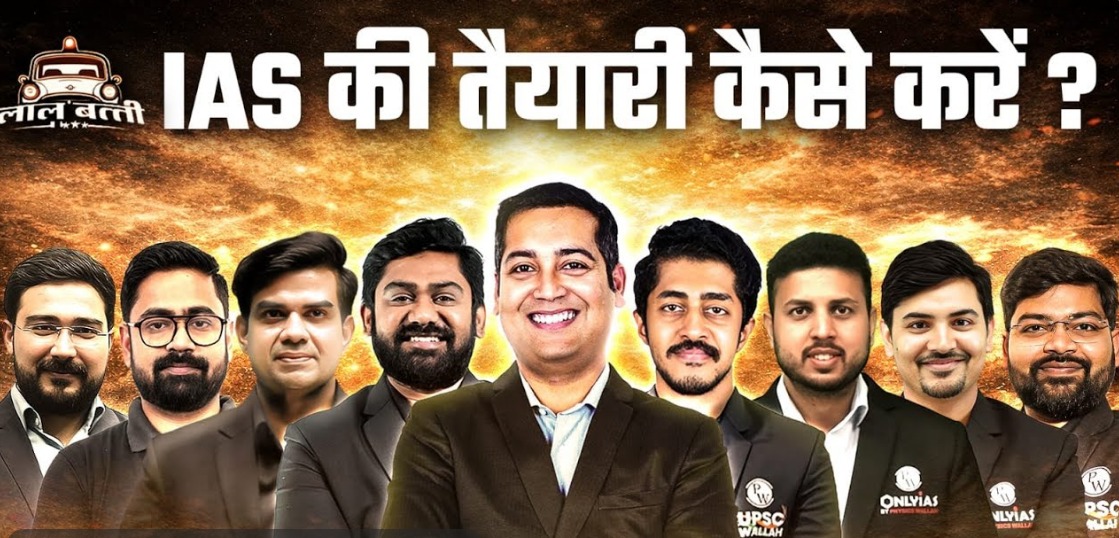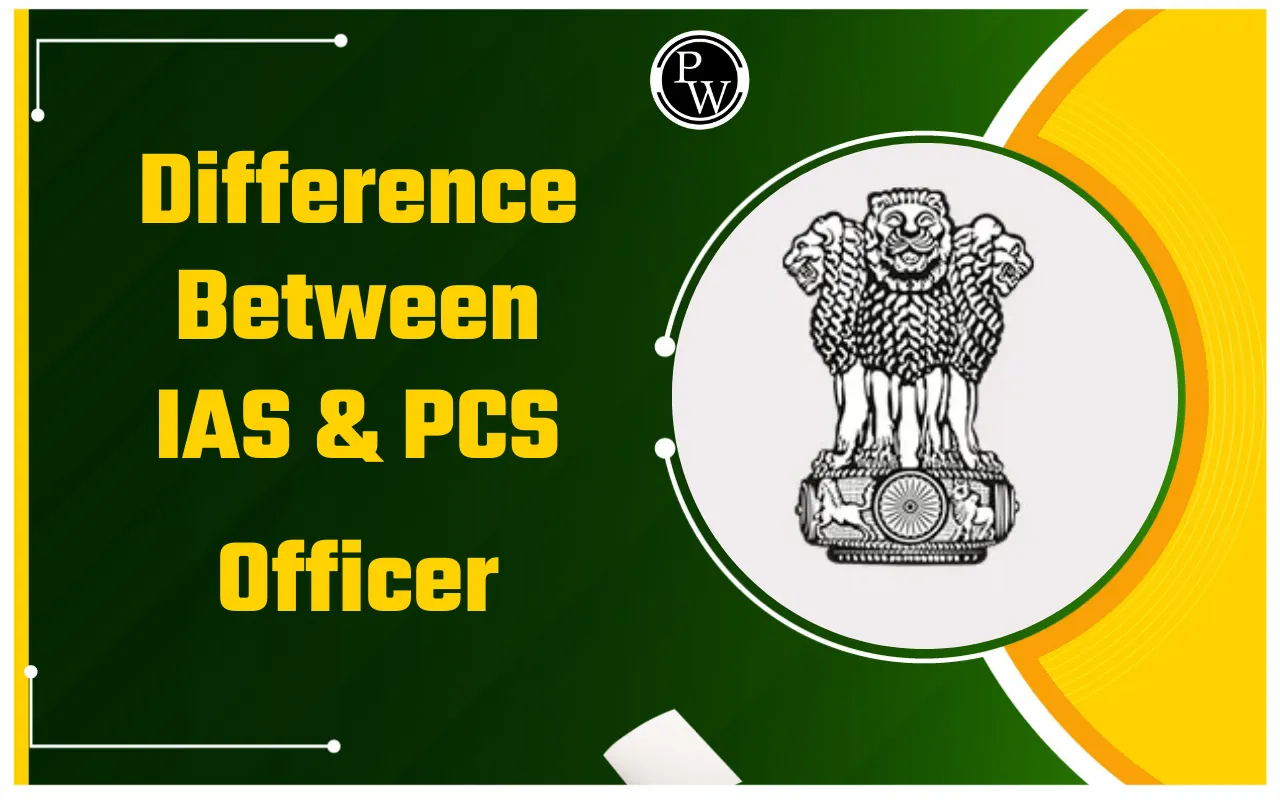
UPSC Group Study vs Self Study: The journey to crack the UPSC Civil Services Examination (CSE) demands dedication, focus, and the right strategy. As UPSC CSE 2025 approaches, aspirants are often torn between choosing group study and self-study.
Each method offers unique advantages, making the decision challenging. Understanding the benefits and drawbacks of both approaches can guide aspirants to choose the right path for their UPSC preparation. Let’s explore the debate of UPSC Group Study vs Self Study, providing insights to help candidates make an informed decision.Group Study vs Solo: Best Strategy for UPSC Preparation 2025
Choosing between group study and self-study is a crucial decision in your UPSC preparation journey. Each method offers unique benefits that can significantly impact your learning. Group study for UPSC allows you to work together with like-minded aspirants, exchange views, and get assistance with challenging topics. On the other hand, self-study provides the flexibility to set your own schedule and concentrate on areas where you need more practice. Choosing between UPSC group study and self-study will allow you to find the most effective way to handle the extensive syllabus and improve your chances of success. To make the right choice, consider your learning style, the UPSC syllabus , and the competition. Ultimately the result will depend on how well you manage your time, a strategic approach is necessary to succeed in UPSC IAS 2025.UPSC Group Study vs Self Study: A Comparison
When discussing UPSC Group Study vs Self Study, it's essential to weigh the pros and cons of each. Group study can foster motivation and help in discussing complex topics, while self-study provides the freedom to go at your own pace and focus on individual weaknesses.Doing UPSC Preparation by Group Study
Group study can be a powerful tool in UPSC preparation. It brings together diverse perspectives, which can enhance your understanding of complex topics. By discussing ideas with peers you can reinforce your knowledge and fill in gaps you might have missed during self-study. However, group study requires discipline and can sometimes lead to distractions if not managed properly. Here are the advantages and disadvantages of group study:| Group Study for UPSC Preparation 2025 | |
| Advantages | Disadvantages |
| Group study encourages consistent study habits, as members are expected to meet and study regularly. | Discussions can easily go off-topic, wasting valuable time. |
| Group members can help each other understand difficult topics. | The group can lead to irrelevant conversations, reducing study efficiency. |
| Exposure to various viewpoints enhances critical thinking, particularly helpful in the UPSC Mains and Interview stages. | It can be challenging to select topics that interest everyone, leading to potential conflicts. |
| Group study can make UPSC preparation more engaging and less monotonous, helping to keep everyone motivated. | Poor decisions regarding study timing, topics, or group members can negatively affect progress. |
| Regular interaction can reduce stress and create a supportive atmosphere before the exam. | Over-reliance may weaken individual study skills as there is a chance you may miss personal study goals. |
| Regular discussions improve communication skills, boosting confidence and articulation skills for UPSC | Coordinating a time that suits all members can be difficult, causing delays in preparation. |
Choosing Self Study for UPSC Preparation
Self-study offers complete control over your study schedule. It allows you to focus on areas where you need improvement and gives you the flexibility to go at your own pace. However, self-study requires strong self-discipline and the ability to stay motivated without external pressure. Here are the pros and cons of choosing self study over group study:| UPSC Preparation By Self Study | |
| Advantages | Disadvantages |
| You can plan your study schedule according to your strengths and weaknesses | Without peer pressure, there’s a higher chance of delaying study sessions. |
| Self-study allows you to study at your own pace, making it easier to balance other responsibilities | Studying alone can lead to feelings of loneliness and a lack of motivation, especially during challenging topics |
| You can focus more on topics that are difficult for you without distractions | There is no immediate feedback or peer discussion, which might make it harder to clarify doubts. |
| Self-study can build strong time management skills, which are crucial for success in the UPSC exam | The lack of interaction can make self-study feel repetitive and boring, which may reduce overall efficiency |
| You can tailor your study plan to include more time for difficult subjects and less for those you're already confident in | Without a support system, it can be challenging to stay motivated, especially during stressful times before the exam. |
| If a particular method or resource isn’t working, you can quickly change it without consulting others | Managing everything on your own can sometimes lead to stress or you may end up choosing the wrong resource |
Which is Better: UPSC Group Study vs Self Study?
Which is better, group study or self study for UPSC? The answer depends on how you like to study. From the above discussion, it can be said that UPSC Group Study vs Self Study both have their benefits. If you choose to study on your own, having the right guidance or mentorship can be very helpful. Physics Wallah is a leading online platform that offers structured courses, expert support, and quality study material, making UPSC preparation by self-study easier and more effective. We have launched IDMP 2.0 , a targeted self study program for UPSC 2025 preparation. This program stands out with its key features, including:- Comprehensive Practice: Daily and weekly Prelims questions, CSAT tests, and Mains practice questions.
- Essay Writing Skills: Monthly essay tests to enhance your writing and analytical skills.
- Structured Phases: Five phases of targeted practice to ensure thorough preparation throughout the study period.
- Extensive Resources : Access to 4500+ MCQs, 450+ Mains questions, 30+ essay topics, and much more for a well-rounded preparation.
| UPSC Related Articles | ||
| Roadmap for UPSC 2025 | IAS Officer After 12th | Youngest IAS Officer |
| UPSC Mains Syllabus | UPSC 2025 Timetable | IAS Promotion Chart |
UPSC Group Study vs Self Study FAQs
How to prepare for UPSC by self-study?
Create a study schedule, focus on your weak areas, use quality resources, and stay disciplined. Join online courses like the IDMP 2.0 program by Physics Wallah for structured guidance.
How to create a group for UPSC preparation?
Form a group with like-minded, serious aspirants, set clear study goals, and establish regular meeting times to discuss topics and clear doubts.
What are the pros and cons of self-study while preparing for the UPSC?
Pros include flexibility, focused learning, and personalized study plans. Cons include the risk of procrastination, lack of feedback, and potential isolation.
Is group study better than self-study for UPSC preparation?
Both have their advantages; group study offers collaboration and diverse perspectives, while self-study provides flexibility and personalized learning. The best choice depends on your learning style.
What is the disadvantage of group study in UPSC preparation?
Group study can lead to distractions, off-topic discussions, and dependency on peers, which may affect individual progress.
Talk to a counsellorHave doubts? Our support team will be happy to assist you!

Free Learning Resources
PW Books
Notes (Class 10-12)
PW Study Materials
Notes (Class 6-9)
Ncert Solutions
Govt Exams
Class 6th to 12th Online Courses
Govt Job Exams Courses
UPSC Coaching
Defence Exam Coaching
Gate Exam Coaching
Other Exams
Know about Physics Wallah
Physics Wallah is an Indian edtech platform that provides accessible & comprehensive learning experiences to students from Class 6th to postgraduate level. We also provide extensive NCERT solutions, sample paper, NEET, JEE Mains, BITSAT previous year papers & more such resources to students. Physics Wallah also caters to over 3.5 million registered students and over 78 lakh+ Youtube subscribers with 4.8 rating on its app.
We Stand Out because
We provide students with intensive courses with India’s qualified & experienced faculties & mentors. PW strives to make the learning experience comprehensive and accessible for students of all sections of society. We believe in empowering every single student who couldn't dream of a good career in engineering and medical field earlier.
Our Key Focus Areas
Physics Wallah's main focus is to make the learning experience as economical as possible for all students. With our affordable courses like Lakshya, Udaan and Arjuna and many others, we have been able to provide a platform for lakhs of aspirants. From providing Chemistry, Maths, Physics formula to giving e-books of eminent authors like RD Sharma, RS Aggarwal and Lakhmir Singh, PW focuses on every single student's need for preparation.
What Makes Us Different
Physics Wallah strives to develop a comprehensive pedagogical structure for students, where they get a state-of-the-art learning experience with study material and resources. Apart from catering students preparing for JEE Mains and NEET, PW also provides study material for each state board like Uttar Pradesh, Bihar, and others
Copyright © 2026 Physicswallah Limited All rights reserved.






